




 |
   |
 |
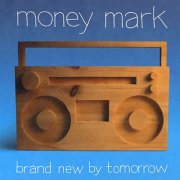 |
Brand New By Tomorrow (2007, 38.09) **½/T |
|
| Color of Your Blues Pick Up the Pieces Summer Blue Pretend to Sleep My Loss, Your Gain Everyday I Die a Little Radiate Nothing Black Butterfly |
Nice to Me Eyes That Ring Brand New By Tomorrow |
|
Current availability:
Chamberlin used:
"Money" Mark Ramos-Nishita is a vocalist/keyboard player/producer who has collaborated with The Beastie Boys and Beck, amongst many others. 2007's Brand New By Tomorrow seems to be typical of his output, a mostly gentle, heartfelt, soft rock/soul album. Yes, I hate it. However, it avoids the gruesome ultra-cheesiness of many of his contemporaries, making it more dull than horrible, several of its songs sounding like they could easily have been hits (only one single was actually released from the album).
Mark plays Chamberlin on Pick Up The Pieces (the single), with a nicely high-in-the-mix string part throughout, although that's your lot. Not a very interesting album for those who prefer to stand (sit, or lie) outside the mainstream, but at least it's got one good Chamby track. And a witty sleeve.
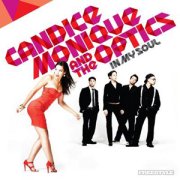 |
In My Soul (2010, 45.03) ***/T |
|
| In My Soul For All Time Mama Don't Know Feel the Vibe Soul Dance My Child Shave My Head Crazy Crazy Thing |
Hypothetical Revolution Wish I Was a Bass |
|
Current availability:
Mellotron used:
Although Candice Monique's been around for a few years, 2010's In My Soul is her first album, backed by her über-funky Optics. No, of course I don't like it, but (for once) it's difficult to fully dismiss the joie de vivre running through much of the record, tracks like Feel The Vibe being sure-fire dancefloor fillers in a world where modern R&B isn't considered the highest form of musical expression. On the lyrical front, while Revolution irritates musically and is, essentially, white hip-hop, it says some pertinent things about Australia's attitude towards the country's original inhabitants.
Mikey Chan plays Mellotron on Shave My Head, with an orchestral-ish string part that enhances the song nicely, making it a shame it wasn't used on a couple of the other slower tracks. Anyway, doubt if this'll be your bag, but at least it's done well, with a decent Mellotron part thrown in.
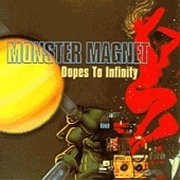 |
Dopes to Infinity (1995, 67.54) ****/TTT |
|
| Dopes to Infinity Negasonic Teenage Warhead Look to Your Orb for the Warning All Friends and Kingdom Come Ego, the Living Planet Blow 'em Off Third Alternative I Control, I Fly |
King of Mars Dead Christmas Theme From "Masterburner" Vertigo |
|
Current availability:
Mellotron used:
Monster Magnet are one of the chief exponents of what the press dubbed 'stoner rock' in the early '90s, otherwise known as a propensity for slowed-down Black Sabbath-alike riffs and far too many drugs. However, they aren't that easy to nail down, stylewise; they don't restrict themselves to slow tempos, don't always try to be heavier-than-thou and band mainman Dave Wyndorf has no problem with slapping Mellotron all over the place, at least every now and again. The drugs are another matter, though I believe he's now gone (relatively) clean.
Actually, what Dopes to Infinity reminds me of most of all (apart from the Sabs, of course), is Hawkwind, particularly on I Control, I Fly; not the extended space-rock jamming end of their sound, but the repetitive riffing and almost chanted vocals. Yeah, Sabbath crossed with Hawkwind. From New Jersey. Weird. Wyndorf even looks a bit like Dave Brock. You know, I wasn't expecting to like this album, but after a few plays it's sneakily grown on me, in a retro-'70s sort of way. Probably because it sounds so uncontemporary, I suppose. Anyway, Mellotron on four tracks, mostly strings, with cellos on Blow 'Em Off. Look To Your Orb... and All Friends And Kingdom Come both have loads of Mellotron strings running through them, in a sort-of-Hawks' Assault And Battery kind of way. Tell you wot, I'm actually going to recommend this for Mellotron fans, although it could've done with being on a couple more tracks towards the end of the album.
See: Samples etc.
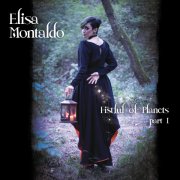 |
Fistful of Planets - Part I (2015, 25.27) ***½/T½In the Cold White Desert - The Blue PlanetSenza Parole - Satellite To Gather - The Green Planet Eclectic Rocks - Satellite Blackgrass II - The Brown/Red Planet Vodka e Limone - Satellite Weeping Willow - The Purple Planet Robot Madness - First Meteor of Chaos |
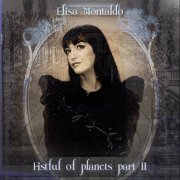 |
Fistful of Planets - Part II (2021, 46.29) ***½/T½Valse des Sirènes (Chanson) - Second Meteor of ChaosFloating/Wasting Life - The Grey Planet Earth's Call - Exosphere We Are Magic - The Fuchsia Planet Haiku - The Orange Planet Feeling/Nothing/Into the Black Hole - The Black Hole Wesak - Satellite Washing the Clouds - The White Planet Valse des Sirènes (Grand Finale) - Satellite |
Current availability:
Mellotrons used:
Elisa Montaldo plays keys with current RPI specialists Il Tempio delle Clessidre, 2015's mini-album (fleshed out with two available-elsewhere ITdC pieces), Fistful of Planets - Part I, being her solo debut. It shifts between multiple styles, from the gentle Rhodes of Senza Parole - Satellite to balladic vocal numbers (To Gather - The Green Planet, Weeping Willow - The Purple Planet), piano-based material (Eclectic Rocks - Satellite) and even the unexpected slide blues of Blackgrass II - The Brown/Red Planet. Is it prog? Kind of. Oddest moment? Ninety seconds into closer Robot Madness - First Meteor Of Chaos, where she recreates Hal 9000's 'Daisy, Daisy' segment from 2001. Mattias Olsson (Änglagård, a million others) adds Mellotron, presumably amongst other vintage 'boards, with distant choirs on opener In The Cold White Desert - The Blue Planet and flute and string parts on Vodka E Limone - Satellite, although the choirs on Weeping Willow sound decidedly non-Mellotronic.
Two albums on, Fistful of Planets - Part II appeared in 2021, sounding not dissimilar to its predecessor in its eclecticism, beginning with a snippet of the 'Hal 9000' section from Part I. The album's probably at its most progressive on Floating/Wasting Life - The Grey Planet and Earth's Call - Exosphere, but several tracks could at least loosely be categorised that way, depending on your criteria. Otherwise, We Are Magic - The Fuchsia Planet is fairly straightforward pop/rock, Feeling/Nothing/Into The Black Hole - The Black Hole is a twelve-minute goth epic, Wesak - Satellite is a brief piano piece and Valse Des Sirènes (Grand Finale) is more late 19th Century than early 21st, although the overriding feel is of progression, if not prog per se. Olsson on Mellotron again, with strings on Floating/Wasting Life - The Grey Planet, a sweeping string melody on Earth's Call - Exosphere and chordal strings on Washing the Clouds - The White Planet.
See: Il Tempio delle Clessidre
 |
Cancelled 7" (1969) ***/TT Together |
Current availability:
Mellotron used:
The Montanas were a Wolverhampton-based band, including vocalist John Jones and bassist/keyboard player Terry Rowley, both of whom went on to join the fledgling Trapeze. Their Together 45 was seemingly a cancelled single from 1969, although I can't give you the story behind it, Web info on the band being a bit thin on the ground. It's a passable psych-era ballad, although there's rather better than this around, if you're into such things.
The lush MkII Mellotron strings on the track are presumably played by Rowley, enhancing an average track nicely, despite clearly being used as an orchestral substitute. This can be found on various compilations, including Wooden Hill's Psychedelic Schlemiels 3 and Syde Trips Vol. 4, although I can't verify the legality of the latter.
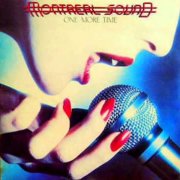 |
One More Time (1979, 37.55) ***/TMusicWhere is the Love Snowstorm in Columbia One More Time Lady Sticks n'Skins Never Go Away Keep on Dreaming |
Current availability:
Mellotron used:
Montreal Sound were (to use Discogs' succinct description) a Canadian disco duo, who spat out four albums over a three-year period, riding the disco gravy train for all they were worth. The last of the four, 1979's One More Time, is more diverse than I'd expected, probably at its best on brief percussion-fest Snowstorm In Columbia and the dropdown in One More Time's middle section, although opener Music sees them in full "yowzah!" mode, dating the track instantly.
Jacques Champoux on Mellotron, with orchestrally-arranged flutes and a cello melody, unusually, on Where Is The Love, although all strings emanate from a string synth. I sincerely doubt that I'll ever listen to this again, but I can't fault it at what it does.
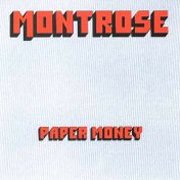 |
Paper Money (1974, 35.13) ***½/T½UndergroundConnection The Dreamer Starliner I Got the Fire Spaceage Sacrifice We're Going Home Paper Money |
Current availability:
Mellotron used:
Montrose, featuring guitar whizz Ronnie Montrose (ex-Edgar Winter Group) and vocalist Sammy Hagar, shot to prominence with their five-star debut, Montrose (***** - see, I told you) in 1973. An absolute classic, it's an obvious influence on bands such as Van Halen later in the decade, though don't let that put you off; even Van Halen started off good... Oddly enough, Hagar ended up singing for them. Life imitating art, maybe? Possibly art imitating shite. Anyway, Montrose followed their debut with Paper Money a year later, but it has to be said that the fire was already burning out for them; they really did not have the fire. To be fair, it's not a bad album, but not really a patch on its predecessor.
Much of the material plods a little, unlike their previous quicksilver approach; I've Got The Fire is the only track where they still seem to have that spark (ho ho), later covered by Iron Maiden, but don't let that put you off, either. Saying that, the instrumental Starliner isn't bad, but most of the album doesn't come anywhere near the standard of Montrose. Session player Nick DeCaro is credited with Mellotron on We're Going Home, actually doing a very nice job, flute and string melodies weaving in and out of the song. Oddly enough, though, there's also some strings on the Stones' Connection, although only piano is credited for the song, so I've no idea whether it was DeCaro on the Mellotron again, or pianist Mark Jordan. Post-Hagar Montrose actually released another two albums after this, but I can't be bothered to find out if they're any good or not, I'm afraid. [n.b. To my surprise, they're actually better.]
Moody Blues (UK) see: |
 |
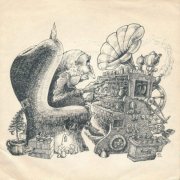 |
7" (1974) ***/TTT½ God Rest Ye Merry Gentlemen Silent Night |
Current availability:
Mellotron used:
Er, who? Despite much conjecture (for which read: 'actually very little conjecture at all'), the person(s) behind Ebenezer Moog have never made themselves known. The instrumental all-synth-and-Mellotron seasonal delights on offer here were originally released on Atlantic in 1974, then reissued by Elton John's Rocket label the following year, making it possible that we're hearing producer and label supremo Rob Dickens, or, of course, even ol' Elt himself, who wasn't averse to a little musical anonymity at times. Strange, for someone otherwise so attention-hungry, but there you go. A complex character.
These two renderings differ quite sharply: God Rest Ye Merry Gentlemen is set to a syncopated dance beat (admittedly, 1974 style), while Silent Night combines audio vérité recordings from lunar expeditions with a mournful, minor-key take on the popular carol, the melody line taken on a vibrato-heavy Moog. Mellotron? Strings all over both tracks, plus choirs on the 'A'. Oh, and thanks to regular contributor Mike for spotting this little oddity for me.
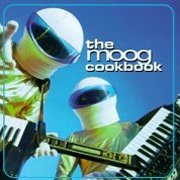 |
The Moog Cookbook (1996, 45.07) ***/T |
|
| Black Hole Sun Buddy Holly Basket Case Come Out and Play Free Fallin' Are You Gonna Go My Way? Smells Like Teen Spirit Evenflow |
The One I Love Rockin' in the Free World |
|
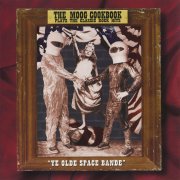 |
Ye Olde Space Bande (1997, 43.38) ***½/½ |
|
| Born to Be Wild Cat Scratch Fever Sweet Home Alabama More Than a Feeling Ain't Talkin' 'Bout Love Whole Lotta Love Ziggy Stardust 25 or 6 to 4 |
Hotel California Rock & Roll All Night |
|
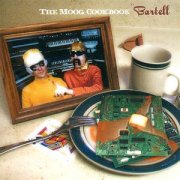 |
Bartell (2005, recorded 199?-199?, 73.50) ***/½ |
||
| Twist Barbie Kelly Watch the Stars Novocaine for the Soul Lost in Space part #1 Lost in Space part #2 Big Me Surrender Pumpernickel's Dark Ride Theme |
Psyché Rock Mountain 20th Century Boy Bob's Boogie Mon Coeur Time Silent Night Winter Wonderland |
Deck the Halls/Sleigh Ride Santa Claus is Coming to Town Jingle Bells |
|
Current availability:
Mellotron/Chamberlin used:
The Moog Cookbook are/were essentially a joke band consisting of Brian Kehew and Roger Manning (Jellyfish, Beck etc.), whose schtick was to play ludicrous, cheesy versions of 'classics' on an array of vintage gear. The Moog Cookbook tackles 'modern rock covers', opening with a bizarre lounge version of Soundgarden's Black Hole Sun, carrying on in similarly silly vein; Smells Like Teen Spirit is probably a 'highlight', depending on your definition of the word. The album's chief problem is that the joke wears thin pretty quickly; I mean, how often would you really want to hear their take on Neil Young's brilliant-but-multiply-badly-covered-while-heavily-missing-the-point Rockin' In The Free World? And that's one of the more straightforward efforts here.
Anyway... Credited Mellotron on two tracks only, with choirs on Come Out And Play (The Offspring, apparently, not that I've ever knowingly heard them), in the middle of the Thus Spake Zarathustra bit (no, really) and, er, more choirs on Tom Petty's Free Fallin'. Plenty of other great synth stuff, including several bits of discordant something, probably ARP 2600; actually, the sounds are far better than what the duo do with them, to be honest, though maybe better a humorous effort like this than some po-faced, self-important drivel like [insert name of your least favourite 'EM' combo here]?
The following year, the duo released their second and last 'proper' album, Ye Olde Space Bande, consisting almost entirely of '70's 'classic rock' covers, as heard interminably on US AM radio, no doubt. We don't have such things over here. Ted Nugent's Cat Scratch Fever? Boston's More Than A Feeling? Kiss' almost unrecognisable Devo-esque Rock & Roll All Night? They're all here. One of the best things about the album is the constant musical 'quoting', à la Emerson and co. The middle section of Whole Lotta Love references several synth 'classics' and they even get the unintentional echo effect from the original right, while Chicago's 25 Or 6 To 4 has Zep's All My Love solo inserted into the middle and as for the Popcorn and Telstar quotes in Hotel California... Unless I'm missing stuff, there's very little tape-replay this time round, with nowt but a few seconds of massed Chamby solo male voices in the dying seconds of Skynyrd's Sweet Home Alabama, although, as usual, it would've worked elsewhere, too.
2005's Bartell seems to be the last word on the Cookbook front, mopping up remixes, tracks from compilations, b-sides and the like, not to mention the Christmas EP, at its most amusing on their take on Cheap Trick's Surrender, which has to be heard to be believed, as do all of the seasonal numbers. One of the duo plays a handful of background Mellotron string notes on their version of Eels' Novocaine For The Soul; if I could give this a quarter T, I would.
See: Jellyfish | Mellodrama
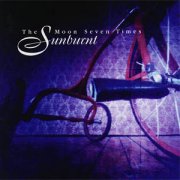 |
Sunburnt (1997, 45.44) **/T |
|
| Further Through the Roses Nashville Thirteen Days What You Said Bug Collection Neither Luminary Some of Them Burn |
Montgomery L You Look Past Me Fat Dog Full Moon |
|
Current availability:
Mellotron used:
The Moon Seven Times, or Moon 7x (or even M7x) were a pseudo-4AD outfit, apeing that label's trademark ambient sound and sleeve design aesthetic. Their last album, 1997's Sunburnt, is clearly designed to appeal to Cocteau Twins, drifting along to no great effect; Bug Collection's about the best thing here, but that isn't saying much, sadly.
Henry Frayne plays what I presume is Echo Park Studio's M400 (thanks, Chris), with a major flute part on Thirteen Days and less of the same on What You Said, although it's hardly enough to make this especially worth hearing.
See: Samples etc.
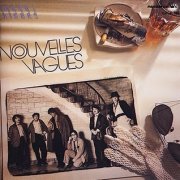 |
Nouvelles Vagues (1978, 39.33) **½/T |
|
| Swimmers Dog Song Animated Hero My Name is Jack Studio Musician Jub Up Family Itoko Dōshi Ya no Hakushaku |
Old Lady Travesia |
|
Current availability:
Mellotron used:
Like so many Japanese acts, I really can't tell you much about The Moonriders, including even a vague (ho ho) idea of how many albums they released, although it seems they featured noted film composer Keiichi Suzuki and Andy Partridge appeared on their 1991 release. As a result, 1978's deliciously French-mangling Nouvelles Vagues may or may not be their debut; if they're considered a 'classic' Japanese band, this album won't be the reason why. It's a rather ordinary J-pop effort of the time, its only unusual feature being their Japanese-language cover of Manfred Mann's My Name Is Jack, borrowing liberally from Beethoven's Ninth in the process (is this on the original?).
Tohru Okada plays Mellotron, with quite overt choirs on Dog Song and less of the same on Ya No Hakushaku, although that would appear to be your lot. Not the most exciting effort ever, then, although at least it's fairly inoffensive, certainly compared to some of the dross that passes through Planet Mellotron HQ. Not much Mellotron, either, so don't go too far out of your way.
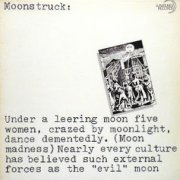 |
Moonstruck (1976, 35.56) ***/T |
|
| Opus 1 Slidin' Rondo in G Major Cog My Mother Forgot to Tie My Shoes This Morning Oceans Notions Dance of the Aardvarks The Joker and the King |
Gord's Tune Interlude in F Major A Space in Time Invention Heather |
|
Current availability:
Mellotron used:
Moonstruck were a one-off Canadian jazzy progressive outfit, much of 1976's mostly instrumental Moonstruck being not a million miles away from the UK's Canterbury scene in its whimsical, flute-driven approach. Thirteen pieces in thirty-six minutes makes for short track lengths, highlights including Rondo In G Major, The Joker And The King, the brief Invention and only slightly less brief closer Heather.
Tony Murphy guests on occasional piano and even more occasional Mellotron, with chordal flutes and strings under the real flute on Heather. A little less whimsy and no vocals whatsoever and this could easily have gained an extra half star. As it is, not bad, yet not great.
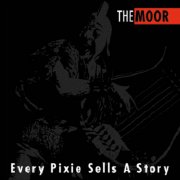 |
Every Pixie Sells a Story (1993, 51.00) ***½/TT½Consider DeathNeo-Futurist Fantasy Candlelight Now... Night and Day Angels of Death Mines of Moria Alien Statement |
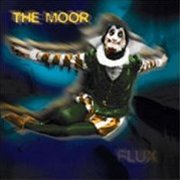 |
Flux (1996, 47.19) ***½/TTTSuckBaby Body Stay Bell Soon Talk |
Current availability:
Mellotrons used:
The Moor were a Swedish prog/space-rock outfit, formed in 1985, influences including King Crimson, Gong and, above all, Hawkwind. They only released two albums 'proper', 1993's Every Pixie Sells a Story (ho ho) and '96's Flux, plus a cassette-only compilation of live and studio material, '94's Live Stupidity & Other Embarrassing Moments.
Every Pixie... is a murky, primitive psychedelic album, typified by their cover of Hawkwind's Angels Of Death; think: space rock filtered through goth, at its best on the storming Now... and lengthy closer Alien Statement. Band leader Kenneth Magnusson plays Mellotron, with chordal choirs and a string line on Candlelight, strings, choirs and a flute line on Now..., choirs on Night And Day, a flute line on Mines Of Moria (which sounds little like you might expect) and a string line on Alien Statement, although the strings on opener Consider Death are generic samples.
Flux is gratifyingly dark, like Anekdoten after partaking of the brown acid, with its single-syllable titles, muttered vocals and weird, low-fi samples. By this point, their lineup included Nik Turner, while the album features several guest players on various orchestral instruments, although the overall sound is a dark, psychedelic stew sitting somewhere in the middle of their various influences. Magnusson on Mellotron again, with strings on opener Suck, choirs on Body, more strings on Stay and Bell, while Soon opens with a solo Mellotron strings part before it goes all Pink Fairies on us, more strings and choirs later on. Strings on closer Talk to finish things off nicely on one of the more Mellotron-heavy efforts I've heard from the '90s. Had to be Sweden, didn't it?
See: Hawkwind | Spirits Burning
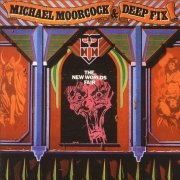 |
The New World's Fair (1975, 42.29/56.39) ***/TT |
|
| Candy Floss Cowboy (narration) Candy Floss Cowboy (demo) Fair Dealer Octopus 16 Year Old Doom You're a Hero Song for Marlene Dodgem Dude |
Come to the Fair Starcruiser In the Name of Rock'n'Roll Ferris Wheel Last Merry Go Round Dude's Dream Brothel in Rosenstrasse |
|
Current availability:
Mellotron used:
Michael Moorcock, is, of course, far better known as an SF/fantasy author than a rock star, though some of his fans may be surprised at how much work he's done with bands over the years. Several sets of lyrics for the Blue Öyster Cult have given him a cult (ho ho) following with their fans, but his best known musical collaborations have been with Hawkwind, with whom he's guested on and off for many years, notably on 1975's excellent Warrior on the Edge of Time. I remember seeing him on stage with them in the early '80s, a burly, bearded man intoning mad stuff about 'sailors on the sea of fate' and the like. Superb.
Moorcock's sole solo album, recorded with his pick-up band, the Deep Fix (named for the fictional band in his Jerry Cornelius stories) The New World's Fair, is something of a mixed bag, to be honest, rather too pseudo-rock'n'roll for its own good. A concept LP about, er, a fairground, or something, it has weird spoken word sections between the tracks, recounting the travails of 'The Dude', but doesn't really make an awful lot of sense. Have you read the Jerry Cornelius books? Deep Fix consisted of, among others, several members of Hawkwind, including violinist/keyboard man Simon House, who adds Mellotron to a few tracks. From the original LP, Song For Marlene is a ballad, speeding up towards the end and smothered in Mellotron strings, while Ferris Wheel's a similar proposition, possibly with a dash of flutes halfway through, though the shrill strings are really upfront at the end of the track, as is the (real) cello.
The 1995 CD reissue (the original vinyl is extremely scarce) adds four bonus tracks, dotted around the disc, rather than stuck at the end as you'd expect, so I've italicised them for simplicity's sake. The rather better CD closer is Moorcock's 1982 single, Brothel In Rosenstrasse, named for one of his novels, but the only really relevant track here is Candy Floss Cowboy (Demo), which appears to fit into the concept at that point, as do the other bonus tracks. Once again, some Mellotron strings, sounding quite analogous to House's use with the Hawks, but nothing you absolutely have to own. Sought-after by Hawkwind collectors, The New World's Fair is OK, but not exactly a 'must-have', unless you have to own everything they've ever done. A bit of a disappointment, to be honest, after all the hype.
See: Hawkwind
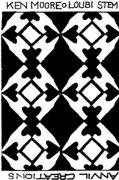 |
 |
Loubi Stem (1981, 42.01) ***/T½Loubi StemAny Sense at All Recessive Regression Invasion of Continuum |
Current availability:
Mellotron used:
Ken Moore began recording experimental music in the mid-'70s, subsequently releasing a slew of cassette-only albums through the first half of the following decade. 1981's Loubi Stem is the sixth of that year's eight releases (!); side two's instrumental credits might give you some idea of where Moore was coming from: 'Modified traffic and ARP Odyssey'. This is a long way from your easily-digested Berlin School stuff and all the better for it, frankly, the title track being only slightly easier listening.
Moore's badly-recorded Mellotron is all over both parts of the side-long title track, with unbelievably murky choirs, one of the brass (?) sounds and string section dipping in and out of the mix. Those with a low tolerance for electronic experimentation should probably look elsewhere, to be brutally honest, but if you find, say, Klaus Schulze to be a little on the light side, Ken Moore might just be your man. I also think I've found a new candidate for 'worst ever recorded Mellotron'.
See: Stuart Rosenzweig & Ken Moore
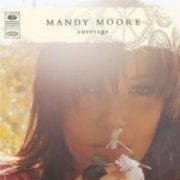 |
Coverage (2003, 46.14) **½/T |
|
| Senses Working Overtime The Whole of the Moon Can We Still Be Friends I Feel the Earth Move Mona Lisas and Mad Hatters Drop the Pilot Moonshadow One Way or Another |
Breaking Us in Two Anticipation Help Me Have a Little Faith in Me |
|
Current availability:
Chamberlin used:
Mandy Moore is yet another of those American singer/actresses that seem to be ten a penny at the moment, although, unlike most, she comes from a musical background, not an acting one. Coverage is officially her fourth album, although her second, I Wanna Be With You, is essentially a remix version of her debut, So Real. Interestingly, given that Moore was only nineteen when the album was released, it's a covers record and not just of the usual suspects. Try these for size: XTC (Senses Working Overtime), The Waterboys (The Whole Of The Moon), Todd Rundgren (Can We Still Be Friends?)... On its release, reviews noted that it was her 'new, mature' face after her earlier teeny releases and, even to a jaded old git like me, it has its moments, with sympathetic arrangements on several tracks and little that genuinely offends, although, sadly, quite a bit that bores.
John Fields plays uncredited Chamberlin (presumably) flutes on Can We Still Be Friends?, while Matt Mahaffey plays them on Joan Armatrading's Drop The Pilot, to passable effect.